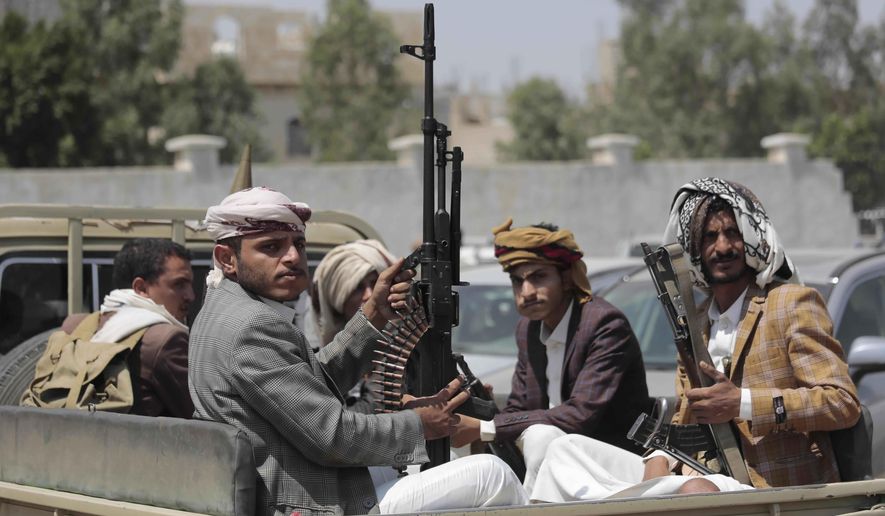CAIRO (AP) - Warring parties in Yemen’s yearslong conflict are “severely restricting” the delivery of desperately needed aid as the country slides toward famine amid the coronavirus pandemic, a rights group warned on Monday.
Human Rights Watch said international donors slashed their funding in June partly because of the “systemic interference” in relief operations by the Houthi rebels who hold Yemen’s capital, Sanaa, as well as by the country’s internationally recognized government and their southern separatists.
That aid includes food, health care supplies, water and sanitation support to people in need in the Arab world’s poorest nation.
“Millions of Yemenis depend on the authorities letting aid flow freely for health care and other necessities,” said Gerry Simpson of Human Rights Watch.
Yemen is home to the world’s worst food crisis, mostly due to the civil war that pits the Houthis in the north against a Saudi-led coalition and its allies in the south, including separatist forces. The Houthis seized Saana in September 2014. The coalition entered the war in March 2015 on behalf of Yemen’s internationally recognized government.
The New York-based watchdog said the Houthis denied obstructing aid, saying groups that made the allegations were following “political orders” from the United States. Yemen’s internationally backed government and the southern separatists did not respond to requests for comment from The Associated Press.
The obstructions partly led to a collapse in donor support to U.N. aid agencies in June. A top U.N. official warned last month that Yemen is sliding toward famine as the coronavirus spreads and its economy implodes.
Some 24 million Yemenis, or 80% of the country’s population, require some form of assistance or protection, according to the U.N. Already, 75% of U.N. aid programs for the country have closed or reduced their operations.
Added to the funding shortages, a new fuel crisis, mainly in Houthi-held areas, has further reduced Yemenis’ access to food, hospital care, and water supplies, Human Rights Watch said.
Yemen has confirmed more than 2,000 cases of the coronavirus, including 584 deaths. However, the actual tally is believed to be much higher as testing capabilities are severely limited and the Houthis have stopped issuing statistics from areas they hold.
Human Rights Watch called for the U.N. to establish an independent inquiry into the extent of obstruction and shortcomings in the humanitarian community’s response. It also urged warring parties to immediately end the obstructions.
However, multiple U.N. reports and appeals have yet to see an end to the crisis in Yemen.




Please read our comment policy before commenting.